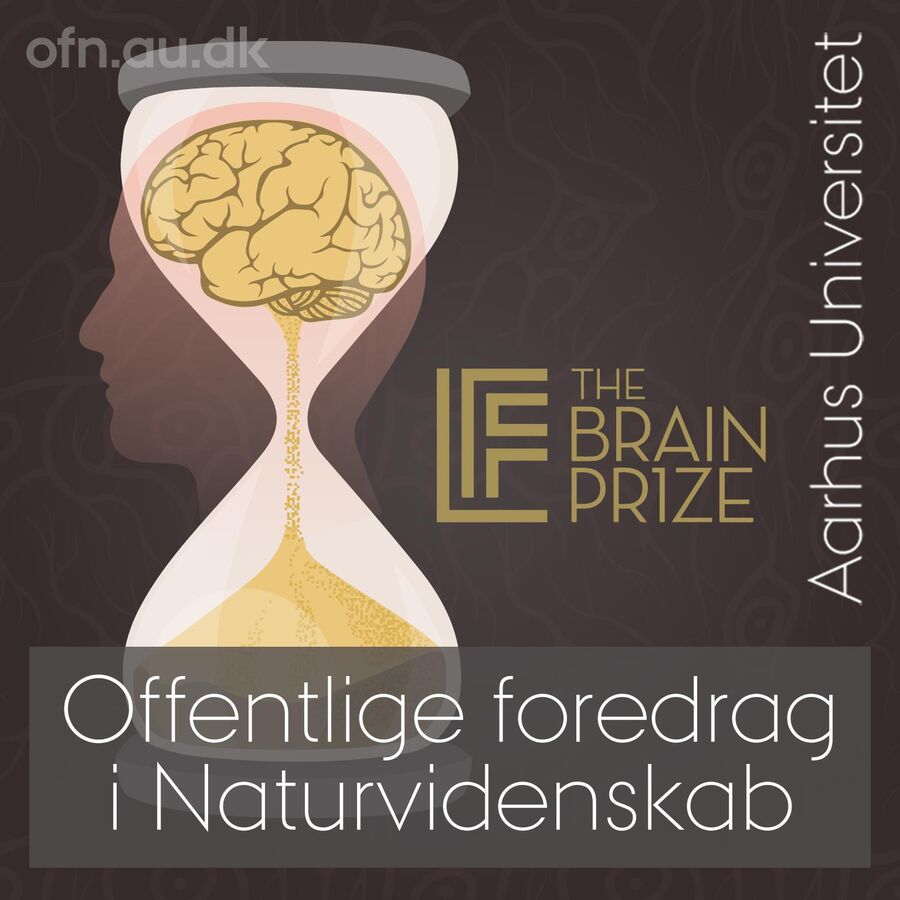
Om dette arrangement
Foredrag - Alzheimer, a complex disease is decrypted
Foredraget livestreames fra Aarhus Universitet. Gratis entré.
Midtvejs er indlagt en pause på 20 minutter.
The lecture is taught in English/Foredraget afholdes på engelsk.
Lecture by professor of molecular biology Christian Haass, Ludwig-Maximilians University Munich, Germany.
Professor Christian Haass is the latest receiver of the greatest prize in brain research, The Brain Prize.
We are happy to announce that he will give the associated public lecture 'The Brain Prize public lecture' at this lecture series: Offentlige foredrag i Naturvidenskab (Public Lectures in Natural Science).
In the lecture, he will talk about the research that led to him being awarded the prize.
No other disease is threatening our society as much as Alzheimer’s disease. Every three seconds someone on our planet is hit by Alzheimer’s disease and by 2050 we expect more than 131 million Alzheimer’s patients worldwide! Thus, we urgently need treatment to prevent a collapse of our ageing society. The only way to reach this ambitious goal is a detailed understanding of the mechanisms, which destroy our memory. In all Alzheimer’s brains, clumps of poisonous proteins, so called plaques and tangles, are deposited and kill our nervous cells.
In many years the genesis of these plaques in our brains, was thought to occur solely under pathogenic circumstances and thus primarily during aging. However, Haass proved that the basic mechanism involved in the constant generation of the building blocks of plaques is active in all of us from birth, which may explain the enormous risk we all have of suffering from Alzheimer’s disease at some point.
Christian Haass will demonstrate that based on the discoveries of these mechanisms, treatment strategies have been developed aiming to slow or even prevent Alzheimer’s disease. Such approaches can indeed prevent the accumulation of plaques in human patients, but so far they fail to stop the memory loss. Is this a disaster indicating that scientists have worked on the wrong mechanisms? Christian Haass does not think so, he will rather demonstrate that plaque deposition starts decades before clinicians observe any memory decline. The deposits in our brains slowly begin their deadly job by killing neurons early on and by the time memory loss becomes apparent, the brain is irrevocably damaged with the consequence that any treatment comes too late. Thus, we do not only need efficacious and safe treatment strategies, but we must develop novel technologies to identify patients, which are at risk to develop Alzheimer’s disease, at a time when no memory loss is observed.
Læs mere om foredraget på Aarhus Universitets hjemmeside
Foredraget er et led i serien Offentlige foredrag i Naturvidenskab som arrangeres af Aarhus Universitet og udbydes i samarbejde med værter i en række byer og Carlsbergfondet
Tilmelding på BIO Næstveds hjemmeside
Foredraget er et led i serien Offentlige foredrag i Naturvidenskab som arrangeres af Aarhus Universitet og udbydes i samarbejde med værter i en række byer og Carlsbergfondet. Næstved Bibliotek og Borgerservice viser foredragene i samarbejde med BIO Næstved.
